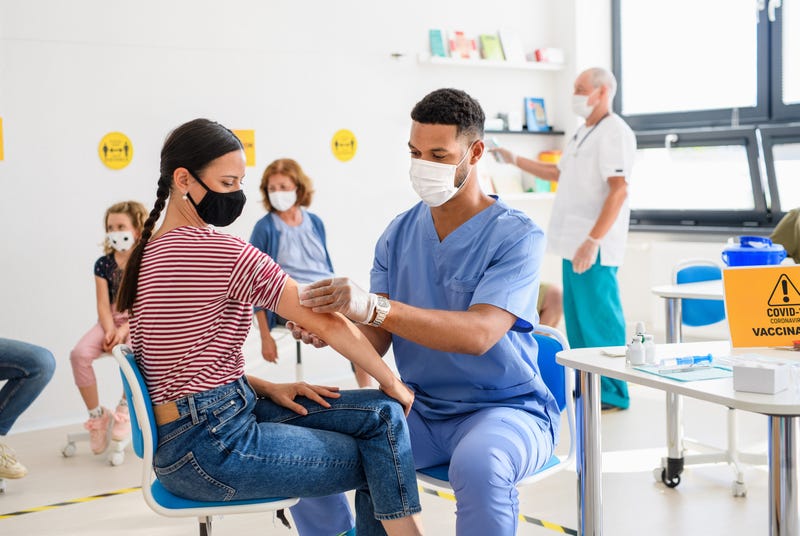
While more and more Californians are being inoculated every day, vaccine hesitancy remains high in parts of the state.
As a result, areas with lower vaccination rates have higher case rates per capita.
“I think sometimes there’s a lot of hesitancy because there’s a lot of questions about these vaccines,” Dr. Trinidad Solis, public health physician at the Fresno County Dept. of Public Health, told KCBS Radio’s Ask and Expert on Thursday.
Solis and other doctors across the state hope to educate areas with lower vaccination rates on the importance of receiving the shot.
“What we’ve been trying to do out here in Fresno County is develop initiatives that meet the populations where they are,” Solis said. “For example doing pop-up, mobile clinic sites in the rural areas because sometimes people have problems with transportation trying to get to the bigger cities, (and we also are) making sure educational materials are in multiple languages.”
She said one of the most common questions she’s received is: Does the COVID-19 vaccine contain the live virus?
“And I always answer that no it does not, and the side effects people develop are not because you have the infection, but that’s just your own body’s immune system developing protection against Coronavirus, SARS COVID-2 which causes COVID-19,” she said.
Last week, Gov. Gavin Newsom announced a large-scale vaccine incentive program, where people who are at least partially vaccinated will be eligible to win cash prizes for as much as $1.5 million.
Solis said it’s too early to tell if this program will be effective, but she’s hopeful it will motivate people to be inoculated.
“We really do hope this motivates individuals,” Solis said. "We have seen even before this that gift cars throughout different communities were being given out and that was helping boost numbers. Along the same lines, I think such an incentive program can definitely help.”
She admits that for many people, receiving the vaccine is not as simple as it is for others, such as those with demanding work schedules or who have children. Programs such as free child-care for recipients and workplace vaccination clinics could help knock down potential road blocks keeping people from being vaccinated.
“It’s tough for individuals after having a long work day, 12-hour shifts sometimes, to go and try to get vaccinated somewhere, and it can be exhausting,” she explained. “We are finding that sometimes we want to reduce barriers and if it’s easier to get vaccinated at the work place, that’s great, that’s another method of reaching our community.”
“Whatever helps motivate individuals to get vaccinated I think is good, to make our community safer,” she added.
LISTEN on the Audacy App
Sign Up and Follow Audacy
Facebook | Twitter | Instagram
